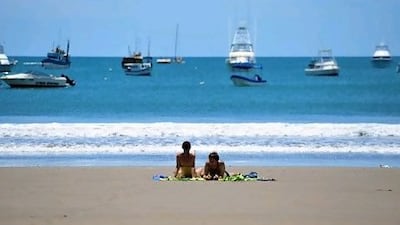In many of history's most successful economic reforms, clever countries have learnt from the policy successes of others, adapting them to local conditions.
In the long history of economic development, 18th-Century Britain learnt from Holland; early 19th-Century Prussia learnt from Britain and France; mid 19th-Century Meiji Japan learnt from Germany; post-Second World War Europe learnt from the United States; and Deng Xiaoping's China learnt from Japan.
Through a process of institutional borrowing and creative adaptation, successful economic institutions and cutting-edge technologies spread around the world and thereby boost global growth. Today there are also some great opportunities for this kind of "policy arbitrage" if more countries would only take the time to learn from the successes of others.
While many countries are facing a jobs crisis, one part of the capitalist world is doing just fine: northern Europe, including Germany, the Netherlands and Scandinavia. Germany's unemployment rate this past summer was about 5.5 per cent and its youth unemployment rate was about 8 per cent - remarkably low compared with many other high-income economies.
How do northern Europeans do it? All use active labour market policies, including flexitime, school-to-work apprenticeships and extensive job training and matching.
Likewise, in an age of chronic budget crises, Germany, Sweden and Switzerland run near-balanced budgets. All three rely on budget rules that call for cyclically adjusted budget balance. And all three take a basic precaution to keep their entitlement spending under control: a retirement age of at least 65. This keeps costs much lower than in France and Greece, where the retirement age is 60 or below and where pension outlays are soaring as a result.
In an age of rising healthcare costs, most high-income countries - Canada, the European Union's western economies and Japan - manage to keep their total healthcare costs below 12 per cent of GDP, with excellent health outcomes, while the US spends nearly 18 per cent of GDP, yet with decidedly mediocre health outcomes. And America's is the only for-profit health system of the entire bunch. A new report by the US Institute of Medicine has found America's for-profit system squanders about US$750 billion (Dh2.75 trillion), or 5 per cent of GDP, on waste, fraud, duplication and bureaucracy.
In an age of soaring oil costs, a few countries have made a real difference in energy efficiency. The Organisation for Economic Cooperation and Development (OECD) countries, on average, use 160kg of oil-equivalent energy for every $1,000 of GDP (measured at purchasing-power parity). But, in energy-efficient Switzerland, energy use is just 100kg per $1,000 of GDP and in Denmark it is just 110kg, compared with 190kg in the US.
In an age of climate change, several countries are demonstrating how to move to a low-carbon economy. On average, the rich countries emit 2.3kg of carbon dioxide for every kilogram of oil-equivalent unit of energy. But France emits just 1.4kg, owing to its enormous success in nuclear energy.
Sweden, with its hydropower, is even lower at 0.9kg. And while Germany is abandoning domestic production of nuclear energy for political reasons, we can bet it will continue to import electricity from France's nuclear plants.
Countries that combine public and private research and development financing are outpacing the rest. The US continues to excel, with recent breakthroughs in Mars exploration and genomics, although it is now imperilling that excellence through budget cuts. Meanwhile, Sweden and South Korea are excelling economically on the basis of research and development spending of about 3.5 per cent of GDP.
At least some countries have narrowed their wealth and income gaps. Brazil is the recent pacesetter, markedly expanding public education and attacking poverty.
And in an age of pervasive anxiety, Bhutan is asking deep questions about the meaning and nature of happiness itself. In search of a more balanced society that combines economic prosperity, social cohesion and environmental sustainability, Bhutan famously pursues Gross National Happiness rather than Gross National Product. Many other countries - including the United Kingdom - are now following Bhutan's lead in surveying the citizenry about life satisfaction.
The countries highest on the ladder of life satisfaction are Denmark, Finland and Norway. Yet there is also hope for those at lower latitudes. Tropical Costa Rica also ranks near the top of the happiness league. What we can say is all of the happiest countries emphasise equality, solidarity, accountability, environmental sustainability and strong public institutions.
So here is one model economy: German labour-market policies; Swedish pensions; French low-carbon energy; Canadian health care; Swiss energy efficiency; American scientific curiosity; Brazilian anti-poverty programmes; and Costa Rican tropical happiness.
Of course, back in the real world most countries will not achieve such bliss any time soon. But by opening our eyes to policy successes abroad, we would surely speed the path to national improvement in countries around the world.
Jeffrey Sachs is a professor of economics and the director of the Earth Institute at Columbia University. He is also a special adviser to the United Nations secretary general on the millennium development goals
* Project Syndicate

